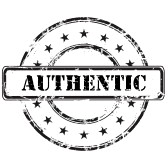Becoming a leader is synonymous with becoming yourself. It is precisely that simple, and it is also that difficult. – Warren Bennis
According to the latest research, scholars agree that there is one—and only one—common characteristic among all exceptional leaders:
Authenticity.
That’s it. Great leaders have discovered who they are and they live their lives in accordance with their true identity. Sounds wonderful, right? It doesn’t matter if we’re tall or short, amateur or professional, a people-person or a data-cruncher, we all have what it takes to become exceptional leaders.
But what if I’m a Jerk?
Some people manipulate the idea of authenticity as an excuse for bad behavior. For example, Bill knows he has a sarcastic sense of humor that offends people, but whenever someone challenges him, he’s quick to pull out the five words that end any discussion: “That’s just who I am.” In effect, He’s saying, I’m being authentic—like you told me.
Bill’s not alone. Amy knows she’s an introvert, so she avoids speaking in public. Dan is left-brained so he doesn’t talk to the people in marketing. Becky knows she has a bad temper, but her outbursts get people moving.
Those who embrace the Authenticity Excuse are settling for a fake and easy “authenticity” that serves their own needs, not those of others.
They make one or both of the these false assumptions:
1. “Who I Am” is static and doesn’t change.
2. This trait is essential to who I am, so I can’t change.
These are both lies. It’s not easy, but people can control their anger and sarcasm, introverts make great public speakers, and Left-brainers have plenty of people skills.
They’re using authenticity as an excuse to not grow or improve. In the end they’ll stagnate, never discovering their true identity. It’s tragic not only for them, but for the people and organizations they attempt to lead along the way.
How have you seen someone use the Authenticity Excuse?
